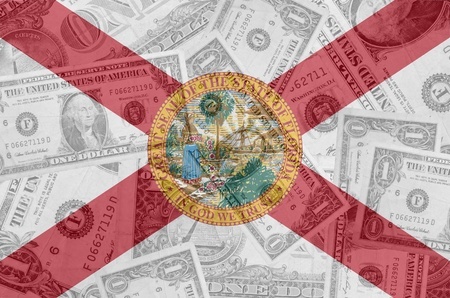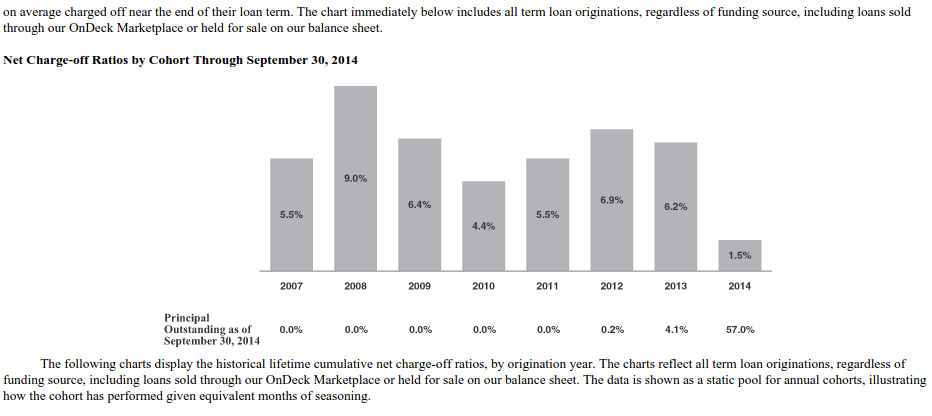Legal Briefs
Florida Court of Appeals Finds Usury Does Not Violate Public Policy, Denies Temporary Injunction
August 8, 2015 The Florida Office of the Attorney General was granted a temporary injunction against CashCall, Inc. The Attorney General’s action was based on alleged violations by CashCall of Florida’s Deceptive and Unfair Trade Practices Act related to loans CashCall had issued to Florida residents that charged rates in excess of Florida’s usury law. The injunction required CashCall to pay all loan proceeds it received during the pendency of the underlying litigation into the court registry and to establish a reserve of one million dollars. CashCall appealed to the Court of Appeals.
The Florida Office of the Attorney General was granted a temporary injunction against CashCall, Inc. The Attorney General’s action was based on alleged violations by CashCall of Florida’s Deceptive and Unfair Trade Practices Act related to loans CashCall had issued to Florida residents that charged rates in excess of Florida’s usury law. The injunction required CashCall to pay all loan proceeds it received during the pendency of the underlying litigation into the court registry and to establish a reserve of one million dollars. CashCall appealed to the Court of Appeals.
In its review, the Court explained that “[a]s a matter of law, in order to obtain a temporary injunction the Attorney General must demonstrate that ‘it has a clear legal right’ to the injunction…” and that “the viability of the Attorney General’s action is dependent on its ability to avoid the choice of law provision in the loan agreements.” The provisions provided that the loans at issue would be governed under the laws of Cheyenne River Sioux Tribe which permitted the rates charged.
The Attorney General argued that the choice of law provision was unenforceable because it violated Florida’s strong public policy against usury. CashCall disagreed. It countered that Florida had no such policy against usury and the provision should be upheld.
CashCall’s argument prevailed. The appellate court cited two cases where the Florida Supreme Court had declined to apply the public policy exception to set aside a choice of law provision in a usury context. In those cases, the Supreme Court held that Florida has no strong public policy against usury as long as there is a reasonable relationship between the chosen jurisdiction and the transaction.
The Court of Appeals highlighted that the Attorney General had essentially agreed with this finding during the lower court proceedings. The Court quoted a portion of the Attorney General’s statement:
Hey, that money you’re getting from Floridians, let’s put it into the Court Registry until we can hear your Motion to Dismiss from all of your hundreds of attorneys and we can talk about hundreds of years’ worth of tribal authority. And you know what, they might win. There’s good case law I think as Brian said on both sides. It is an interesting argument. But I would like to ask the Court to focus on what we asked for and are we entitled to it.
Based on the Attorney General’s statement and Supreme Court precedent, the Court of Appeals found that the Attorney General had failed to demonstrate a clear right to the injunction and reversed the lower court’s decision.
Cashcall, Inc. v. Office of the AG, 2015 Fla. App. LEXIS 11559 (Fla. Dist. Ct. App. 2d Dist. July 31, 2015)
Is This OnDeck Class Action Lawsuit a Sham?
August 7, 2015Update: The lawsuit was withdrawn on September 28, 2016
 If you haven’t actually read the class action complaint filed against On Deck Capital on August 4th for an alleged violation of securities laws, you can download it here. Reactions throughout the industry are generally mixed, but the big surprise is that anyone would actually be surprised about who OnDeck is or what they are doing.
If you haven’t actually read the class action complaint filed against On Deck Capital on August 4th for an alleged violation of securities laws, you can download it here. Reactions throughout the industry are generally mixed, but the big surprise is that anyone would actually be surprised about who OnDeck is or what they are doing.
The company sourced 68.5% of its loans from commercial finance brokers in 2012 and 45.6% of its loans from them in 2013. By the second quarter of this year, that percentage had drifted down to 20.6%.
To OnDeck, this gradual shift has been part of an overall strategy to control their sales process, costs, and reputation. While it might impede origination growth in the short term, it would be a heck of a lot harder to explain to investors in the future that the company’s fate was in the hands of unknown salespeople who may or may not be swayed to work with their competitors at any moment.
Understandably, many brokers were not happy when OnDeck suddenly terminated them. Angry feelings spilled out on to DailyFunder, an online message board, and were eventually cited in a Seeking Alpha article, the very same article the lawsuit opens up with to make its case.
“THE TRUTH BEGINS TO EMERGE,” the complaint states. “On February 11, 2015, less than two months after the IPO, SeekingAlpha.com published an article entitled “On-Deck Capital: Bad Loans, Bad Interest Rates, Bad Business Plan.”
But the author of the article, TheStreetSweeper, which describes itself as as “a publisher of news and opinion,” placed a disclaimer that they held a short position in OnDeck’s stock. And notably, TheStreetSweeper website is run by Hunter Adams, a convicted felon who makes no effort to hide his past. His website bio says, “his career ended in 2001, when government investigators accused him of manipulating worthless penny stocks.” And continues, “he pled guilty to two conspiracy charges — for securities fraud and money laundering — and served time in prison for his crimes. Years later, he pled guilty to racketeering charges, fully cooperated with the government and accepted full responsibility for his actions.”
Today, his opinion on a stock for which he holds a short position in, has somehow become credible enough for lawyers to make the case that the “truth” had come out about OnDeck. But it’s no small oversight by the Pomerantz law firm, the attorneys that brought the suit on behalf of plaintiff Carl A. Stitt. A cursory glance at the law firm’s past press releases and filed complaints show that the firm regularly relies on TheStreetSweeper’s stories to solicit plaintiffs as well as to bolster class action complaints.
Notably, TheStreetSweeper’s analysis (overseen by convicted mob associate pumper dumper Hunter Adams), which Pomerantz accepts at face value and offers as evidence of misleading default rates, calculates a loan loss rate 24.8%. That formula is unfortunately incorrect. $26.7 million in charge offs divided by $107.6 million in gross revenue might return 24.8% but that’s not how one assesses a loan loss rate. $107.6 million is the interest income, not the aggregate loan principal.
OnDeck had an aggregate unpaid principal balance on loans outstanding of $422.1 million for the nine months ending September 30, 2014. $26.7 million was charged off during that time period.
Some quick math: $26.7 million/$422.1 million = 6.3% lost.
This is decent considering the company generated $107.6 million worth of interest income, not to mention consistent with what company management has both said and reported. TheStreetSweeper’s math and the plaintiff’s reliance on it is unsurprisingly wrong.

Reading through the rest of the suit, the plaintiff’s complaint hinges almost entirely on the phony calculation.
OnDeck might not be popular with the commercial finance brokers these days, and I myself have published several posts about their progress (good and bad), but if anything is garbage, it’s probably this lawsuit.
—-
Note: I do not and have never had a financial position in OnDeck.
Blyden v. Navient Corp: A Glimpse of a Post-Madden Future?
July 28, 2015 A recent US District Court decision out of California offers a rough idea of the usury litigation that may begin to occur if the decision in Madden vs. Midland Funding, LLC ultimately stands.
A recent US District Court decision out of California offers a rough idea of the usury litigation that may begin to occur if the decision in Madden vs. Midland Funding, LLC ultimately stands.
The case involved a student loan that the plaintiff had received that had been originated by a national bank. The loan charged an interest rate of 10.25% which the plaintiff believed to be lawful because the loan had been made by a bank.
When the plaintiff later learned that her loan had been assigned to a non-bank entity, she instituted a usury class action arguing that the assignee was not been permitted to charge more than 10% interest under California law. She sought to represent a class of borrowers whose loans had been made by the national bank and later assigned.
In an effort to represent the largest class possible, the plaintiff named as defendants various investment trusts that had purchased loans from the bank despite the fact that most of the trusts had never had any interest in her specific loan. While the court ultimately dismissed the case because of pleading deficiencies, it granted the plaintiff leave to amend her complaint and the case seems likely to continue.
What’s noteworthy about the Blyden case is that it is illustrative of some of the possible consequences of the 2nd Circuit’s decision in Madden. In particular, it shows that a large number of unrelated entities may be drawn into extended litigation by a plaintiff that is unable (because of a lack of information) or unwilling (because of a desire to represent the largest class possible) to limit its claims to those specific entities that have had or presently maintain an interest in the loan at issue. While this desire to cast the widest net possible is common to most class action plaintiffs, it seems likely to prove especially true in cases involving securitized products that have passed through numerous investment vehicles.
Blyden also demonstrates that debtors that become aware of subsequent assignments of their loans may be inclined to use the assignment event as a way to invalidate otherwise legitimate debts. The plaintiff in Blyden conceded that she was unable to pursue a usury action against the national bank that had originated the loan because of NBA preemption. She also acknowledged that the original transaction had been legal. Only when the plaintiff later learned of the assignment of her loan to a non-bank entity did she seek to recover the allegedly usurious interest charges.
What may be most disconcerting for assignees about the Blyden case is that it only demonstrates some of the complex consequences that may result from the Madden decision.
Blyden v. Navient Corp., 2015 U.S. Dist. LEXIS 96824 (C.D. Cal. July 23, 2015)
Failure to Prove Damages Dooms Usury Claim
July 27, 2015 A recent decision in an adversarial bankruptcy proceeding demonstrates how important it is to prove each and every element of a claim of usury. In the case, the court refused to award relief–despite the rate being conceded as usurious–because the debtor had failed to plead all of the required elements of the claim.
A recent decision in an adversarial bankruptcy proceeding demonstrates how important it is to prove each and every element of a claim of usury. In the case, the court refused to award relief–despite the rate being conceded as usurious–because the debtor had failed to plead all of the required elements of the claim.
The litigation involved long standing business partners whose relationship had soured. When one partner filed bankruptcy, the other filed a plethora of proof of claims for money allegedly owed.
The debtor countered with usury as a defense. While the creditor conceded that the rate alleged in its proof of claims exceeded the maximum rate in Texas, it argued that the filing of a proof of claim did not constitute a “charge” under Texas’ usury statute. Therefore, the creditor believed it was not subject to the usury penalties.
The court rejected the creditor’s contention and cited to a number of cases that had construed proof of claims as “charges” under Texas’ usury statute. These holdings, coupled with the creditor’s admission, led to a quick finding of fact that the alleged rate was usurious.
The court then turned to the element of damages. The Texas code provides that:
A person who violates this subtitle by contracting for, charging, or receiving interest or time price differential greater than the amount authorized by this subtitle is liable to the obligor for an amount equal to:
(1) twice the amount of the interest or time price differential contracted for, charged or received; and
(2) reasonable attorney’s fees set by this court.
Texas Finance Code § 349.001(a).
Despite the finding of a usurious rate, the court held that the debtor had failed to present any evidence or testimony to prove the amount of interest that was usurious under Texas law. Rather, the debtor had merely made conclusory statements that the interest rate charged was usurious. The court held these statements to be insufficient evidence to justify an award of damages.
Ali v. Merchant (In re Ali), 2015 Bankr. LEXIS 2443 (Bankr. W.D. Tex. July 23, 2015)
Are You Robodialing? The TCPA and FCC Scoop You Need to Know
July 2, 2015 In 1991, when Congress began regulating autodialers via the Telephone Consumer Protection Act, our phones and our relationships with them were vastly different from what that equipment and those relationships look like today. At that time, Congress was regulating a world without text messages and ubiquitous cell phones and a world where autodialers were infuriating consumers nationwide for their ability to generate and dial telephone numbers indiscriminately without regard for who was on the receiving end of the call.
In 1991, when Congress began regulating autodialers via the Telephone Consumer Protection Act, our phones and our relationships with them were vastly different from what that equipment and those relationships look like today. At that time, Congress was regulating a world without text messages and ubiquitous cell phones and a world where autodialers were infuriating consumers nationwide for their ability to generate and dial telephone numbers indiscriminately without regard for who was on the receiving end of the call.
In the intervening years, Congress has made modest TCPA amendments to address unsolicited faxes and nefarious manipulation of caller ID information, but it has otherwise failed to adjust the law to reflect the way we communicate today. The FCC has tried harder than Congress to update its TCPA rules, but it too has failed in this regard. The result is a set of obsolete standards whose significance vastly outpaces their sense due to the TCPA’s private right of action and rigid statutory damages calculation. Companies hoping the FCC would pivot toward sanity in its recent announcement of TCPA guidance are surely disappointed today.
The TCPA has always defined a regulated “autodialer” as equipment with the capacity to store or produce telephone numbers to be called using a random or sequential number generator and to dial such numbers. The FCC’s TCPA rules retain that formal definition, but the FCC has explained that predictive dialers and other equipment enhancing dialing efficiency are also regulated as autodialers because of their capacity to dial numbers without human intervention. The FCC has repeatedly confirmed that the focus of the “autodialer” standard is on the equipment’s capacity, not its actual use.
A number of courts have tried to make this “capacity” standard more concrete by limiting it to the equipment’s present capacity, that is, what the equipment was capable of doing when the calls at issue were replaced, without considering what the equipment could be reconfigured to do at some future time. These courts explained that a focus on present capacity was necessary to ensure that every person’s smartphone would not be regulated as an autodialer based on what it could be reprogrammed to do.
 The FCC received a number of petitions seeking more formal, universal guidance on the TCPA’s “autodialer” standard. We are still waiting for the FCC to publish the guidance it has approved, but according to the FCC’s June 18, open meeting, that guidance will not make this issue any clearer. According to the FCC’s preview, that guidance will affirm that the TCPA’s “autodialer” standard focuses on the equipment’s capacity, ensuring that “robocallers cannot skirt consumer consent requirements through changes in calling technology design or by calling from a list of numbers.” If this is an accurate summary of the FCC’s guidance, it will do absolutely nothing to resolve the most pressing concerns on this issue. It will not address whether “click-to-dial” technology, which involves some human intervention but may have the capacity to operate without it, is regulated as an “autodialer.” It will not address whether the definition’s “capacity” element is limited to present capacity or also includes possible future capacity. The surge in private TCPA litigation makes these ambiguities treacherous.
The FCC received a number of petitions seeking more formal, universal guidance on the TCPA’s “autodialer” standard. We are still waiting for the FCC to publish the guidance it has approved, but according to the FCC’s June 18, open meeting, that guidance will not make this issue any clearer. According to the FCC’s preview, that guidance will affirm that the TCPA’s “autodialer” standard focuses on the equipment’s capacity, ensuring that “robocallers cannot skirt consumer consent requirements through changes in calling technology design or by calling from a list of numbers.” If this is an accurate summary of the FCC’s guidance, it will do absolutely nothing to resolve the most pressing concerns on this issue. It will not address whether “click-to-dial” technology, which involves some human intervention but may have the capacity to operate without it, is regulated as an “autodialer.” It will not address whether the definition’s “capacity” element is limited to present capacity or also includes possible future capacity. The surge in private TCPA litigation makes these ambiguities treacherous.
Although the FCC discussion of its TCPA guidance touts the protections provided to consumers, the autodialer provisions apply equally to business-to-business calling. MCA companies must be aware of the TCPA’s autodialer requirements for B2B calling campaigns. They can be sued for improper calls placed to businesses, as well as errant B2B calls that are answered by individual consumers. The FCC’s TCPA rules establish that callers must have the call recipient’s “prior express written consent” for sales calls placed to cell phones using an autodialer or a prerecorded message. This form of consent requires a signed writing from the call recipient and requires certain “magic words” disclosures that must be provided when the consent is obtained. This consent requirement applies to B2B calls as well as B2C calls, and the existence of an established business relationship between the parties to the call does not provide any relief from this requirement. Non-sales calls to cell phones using an autodialer or a prerecorded message require “prior express consent.” This term is not defined, but the FCC has explained that a call recipient provides valid consent to a creditor by volunteering his or her cell phone number to the creditor, such as on a credit application. There are tricky details in this standard, so MCA companies should proceed with caution in order to establish valid TCPA consent.
Technology makes our lives easier, but it makes our TCPA compliance analysis more complicated. The TCPA should not impede technological developments that do no harm, but the law’s enforcement scheme encourages “professional plaintiffs” and greatly increases the likelihood that a TCPA violation will result in a lawsuit. The FCC is presently fumbling an opportunity to address this. It’s unclear when another such opportunity will arise or what it will take for the FCC to decide to align its TCPA rules with the real world.
Legal Brief: Madden v. Midland Funding
June 11, 2015Madden v. Midland Funding, 2015 U.S. App. LEXIS 8483 (2nd Cir. May 22, 2015).
 This is an interesting case for the alternative lending industry that deals with the interplay between the National Banking Act and New York State’s usury laws.
This is an interesting case for the alternative lending industry that deals with the interplay between the National Banking Act and New York State’s usury laws.
The plaintiff borrower opened a credit card account with a national bank, Bank of America (“BoA”). BoA sold the account to another national bank, FIA. FIA subsequently sent a change of terms notice stating that, going forward, the plaintiff’s account agreement would be governed by the law of Delaware, FIA’s home state. FIA later charged off the account and sold it to a third-party debt purchasing company, Midland. FIA did not retain any interest in the account after selling it to Midland and Midland was not a national bank.
Midland attempted to collect on the account and sent the plaintiff a demand letter indicating that there was a 27% interest rate on the account. Plaintiff sued Midland, alleging violations of the Fair Debt Collection Practices Act and New York’s criminal usury laws. New York law limits effective interest rates to 25 percent per year. The parties agreed that FIA had assigned plaintiff’s account to Midland and that the plaintiff had received FIA’s change in terms notice. Based on the agreement, the trial court held that the plaintiff’s state law usury claims were invalid because they were preempted by the National Bank Act.
The National Bank Act supersedes all state usury laws and allows national banks to charge interest at the rate allowed by the law of the bank’s home state. Midland argued that, as FIA’s assignee, it was permitted to charge the plaintiff interest at a rate permitted under Delaware law. FIA was incorporated in Delaware and Delaware permits interest rates that would be usurious under New York law.
On appeal, The Second Circuit Court of Appeals noted that some non-national banks, such as subsidiaries and agents of national banks, might enjoy the same usury-protection benefit as a national bank. However, third-party debt buyers, such as Midland, are not subsidiaries or agents of national banks. Midland was not acting for BoA or FIA when it attempted to collect from the plaintiff. Midland was acting for itself as the sole owner of the debt. For this reason, the Second Circuit held that Midland could not rely upon National Bank Act preemption of New York State’s usury laws.





























